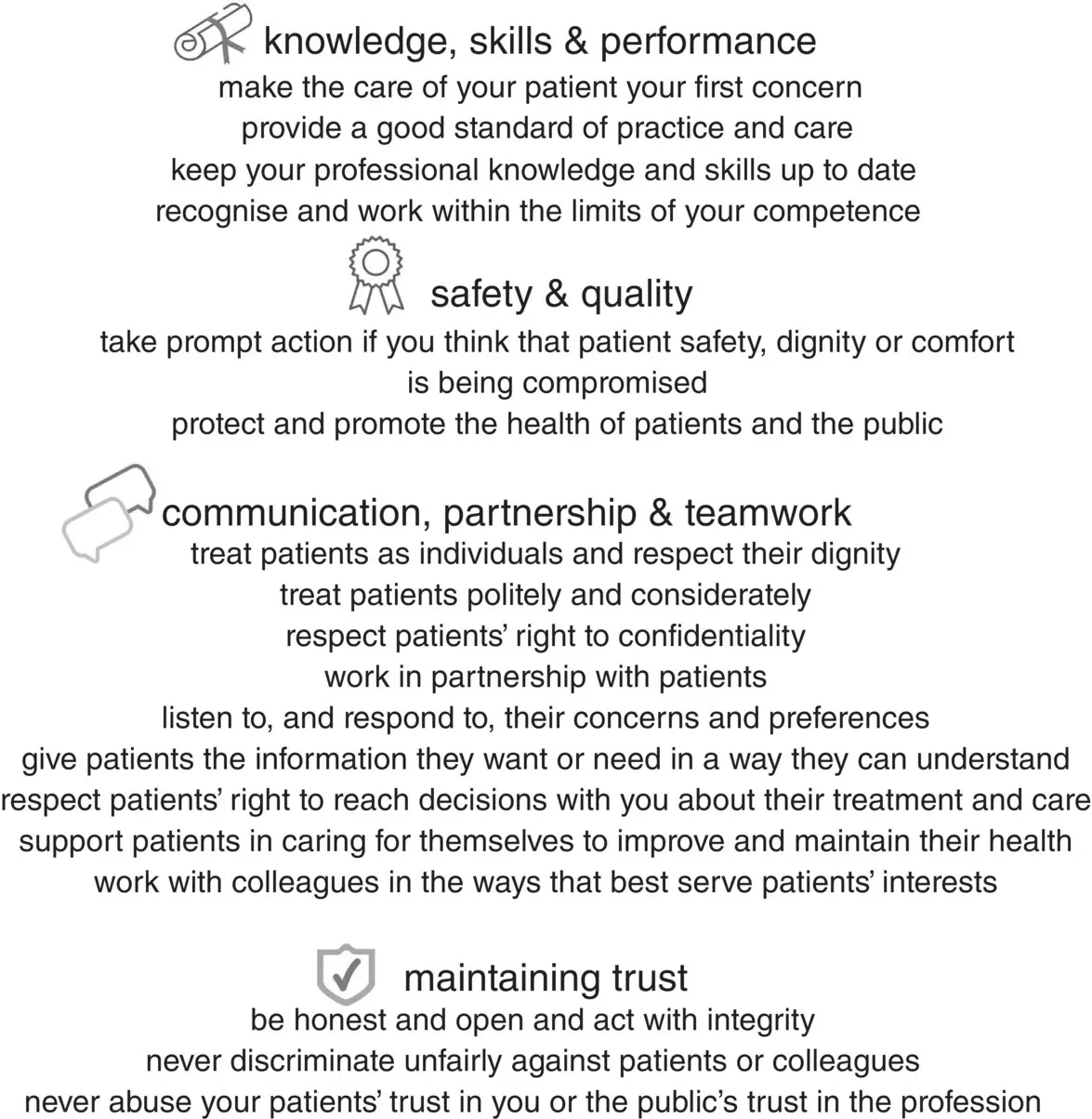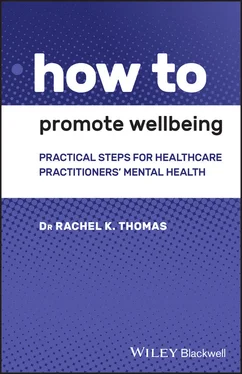This book addresses issues in a direct, practical way, since we, as clinicians, are generally time‐poor. In the first half of the book we analyse and highlight problem factors that potentially affect our mental health and wellbeing. Given that our own mental health and wellbeing has the potential to impact on the outcomes of our patients, we then consider the problem factors and protective factors relevant to the mental health and wellbeing specifically of our patients. This is in no way intended to be a complete analysis of this huge area. It is just intended to highlight some areas, and to propose some protective factors that may be of benefit to our patients. The second half of the book provides information on protective factors for clinicians, for preserving our own mental health and wellbeing. Evidence‐based tools and techniques are included, for use to not only promote and protect our own wellbeing, but in the process, to enable the continued delivery of optimum levels of care to our patients.
Increased understanding of:global problems affecting mental health and wellbeingorganisational problem factors affecting mental health and wellbeingindividual problem factors affecting mental health and wellbeingthe impacts of chronic stressthe impacts of burnoutprotective factors affecting mental health and wellbeing
Increased ability to recognise the signs of burnout
Increased awareness of:protective factors for promoting organisational resilienceprotective factors for promoting individual resiliencethe need for recovery behaviours, and potentially suitable behaviours.
Reading this book and then appropriately reflecting on aspects such as the above learning outcomes may qualify as being eligible for Continuing Professional Development (CPD) points. It is also important to note that this book is not intended as a support for us when we are in acute phases of distress or suffering with a mental health condition. The resources in Chapter 7provide sources of help in any acute instance, as this book is not intended as an exclusive treatment or diagnostic tool. In situations where we are unsure whether we need further help, a conversation with a trusted colleague, local General Practitioner (GP), friend, or family member is a helpful first step.
Why should we be concerned about our own wellbeing?
Healthcare is evidence‐based. We use evidence to decide the best treatments and courses of actions for our patients. Why should we not apply the same standard to look after our own wellbeing? Looking at the evidence – as we do in other areas of healthcare – there is plenty to support the fact that we are in the best position to look after our patients when we also look after our own wellbeing.
Grim statistics highlight what happens when we don’t.
In the UK, it is estimated that, per year, errors cost the NHS over 1 billion GBP in litigation, and 2 billion GBP due to bed delays. 1The human cost – grief, pain, and suffering by those at both ends of the error – is, of course, inestimable.
Even if we think we do not have time to care for our own wellbeing, or that it is ‘optional’, clinician codes of conduct make it clear that maintaining our own wellbeing is essentially a requirement.
Professional codes for different healthcare practitioners cover aspects of practice, and these can be interpreted to either explicitly or implicitly direct us to ensure our own health and wellbeing is adequate.
The General Medical Council (GMC) provides guidelines on ethical guidance and good medical practice. 2Patient care is the first concern under ‘Knowledge, Skills, and Performance’. Associated with ‘ providing a good standard of practice and care’ is the recognition that we work within our own competence and its limitations. 3
It even explicitly covers ‘ risks posed by your health’ . 4Knowing, or even suspecting, that our performance and/or our judgement could be impacted by a condition requires us to consult with a suitably qualified colleague. While at times we may not be fully aware of how our wellbeing is impacting on us, usually we have at least some degree of insight and self‐awareness which means we at least do ‘have a hunch’ that we may be in need of help.
Taking this a step further means that we should, in all likelihood, take as many steps as possible to protect our mental wellbeing.
The GMC’s guide for ‘ Good Medical Practice’ emphasises that our first concern is the patient’s care, and that we should act promptly if we feel this may be compromised. We must monitor the quality of our work, and ensure that we work within the limitations of our competence ( Figure 0.1).

Figure 0.1 Duties of a doctor registered with the GMC. 3
The Nursing and Midwifery Council (NMC) outlines professional requirements and standards for nurses in the UK. 5Nurses joining this register are required to commit to uphold the standards it outlines. The register clearly states that ‘ nurses, midwives, and nursing associates are expected to work within the limits of their competence ’. 5
The register also clearly states there is a requirement to:
‘pay special attention to promoting wellbeing, preventing ill health, and meeting the changing health and care needs of people during all life stages
be supportive of colleagues who are encountering health or performance problems. However, this support must never compromise or be at the expense of patient or public safety
take account of your own personal safety as well as the safety of people in your care
take all reasonable personal precautions necessary to avoid any potential health risks to colleagues, people receiving care, and the public
maintain the level of health you need to carry out your professional role
support any staff you may be responsible for to follow the Code at all times. They must have the knowledge, skills, and competence for safe practice; and understand how to raise any concerns linked to any circumstances where the Code has, or could be, broken.’5
It can clearly be seen that these, and additional, areas of the code highlight that there is a professional requirement to maintain our own wellbeing. It is not only doctors and nurses who are bound by these requirements. Other healthcare professionals may have similar codes, highlighting the need to ensure and maintain personal wellbeing.
The practice standards are clear for all Allied Health professionals, for example Speech and Language Pathologists, Occupational therapists, Physiotherapists, Physical Therapists, Chiropodists, Audiologists, Diagnostic Imaging Technologists, Specialist Diagnostic Imaging Technologists, Medical Laboratory Technicians, Emergency Medicine Technicians, Addiction Counsellors, and Dietitians. 6
In the section on ‘Maintaining fitness to practice’, the standards instruct that an Allied Health professional is to ‘ maintain his/her own health and wellbeing. A registered professional should restrict or accommodate practice if he/she cannot safely perform essential functions of his/her professional role due to mental or physical disabilities ’, 6to ‘ strive to maintain a healthy work‐life balance ’, 6and that ‘ registered health professionals should support the health and wellbeing of their colleagues. When doing so a registered professional should encourage colleagues who require care to seek appropriate help .’ 6Thus, there are clear requirements to look after our own wellbeing, and to ensure we have a work–life balance that is healthy and sustainable.
Читать дальше













